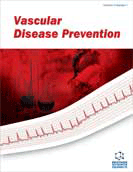
Abstract
Objective: The apolipoprotein A-I (apoA-I) variant apoA-IMilano has rapid passivating effects on atherosclerotic plaques. In this study we tested if human wild-type apoA-I can likewise rapidly mobilize cholesterol and reduce inflammation and lipid contents of atherosclerotic plaques. Methods and results: 22 weeks old apoE-deficient mice fed a high-cholesterol diet received high-dose intravenous apoA-I (50 mg/kg) complexed with dimyrisitoylphosphatidylcholine (DMPC) (120 mg/kg) (n=25), DMPC alone (n=25), or placebo (n=25) 4 times over 2 weeks and were compared with a baseline group (n=25). Atherosclerosis was determined in the aortic root and the aortic arch, and aortic root plaques were evaluated for lipid and macrophage contents. ApoA-I treatment led to a fast (1 h) increase in plasma cholesterol that was maintained throughout the study. DMPC likewise increased plasma cholesterol, but significantly less. Atherosclerotic burden was unaltered, but mice receiving apoA-I had 16% lower lipid content (P < 0.01) and 32% lower macrophage content (P < 0.05) in their plaques compared with baseline. Conclusion: Wild-type apoA-I is able to alter plaque composition in a potentially beneficial way in a short-term high-dose treatment setup. Our findings support the effects of apoA-Imilano reported in other studies, but also calls for head-to-head comparisons between the two apoA-I types.
Keywords: Atherosclerosis, HDL, apolipoprotein A-I, mice



